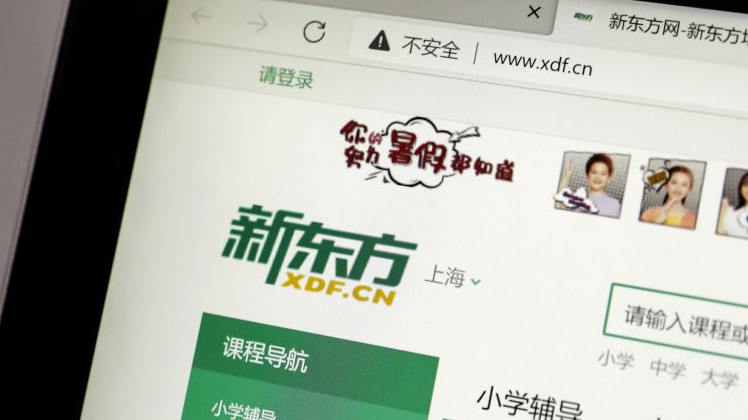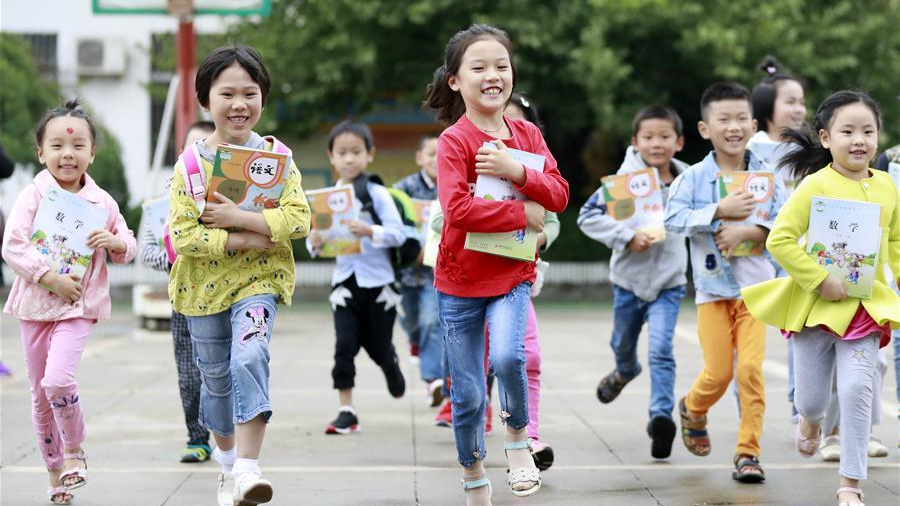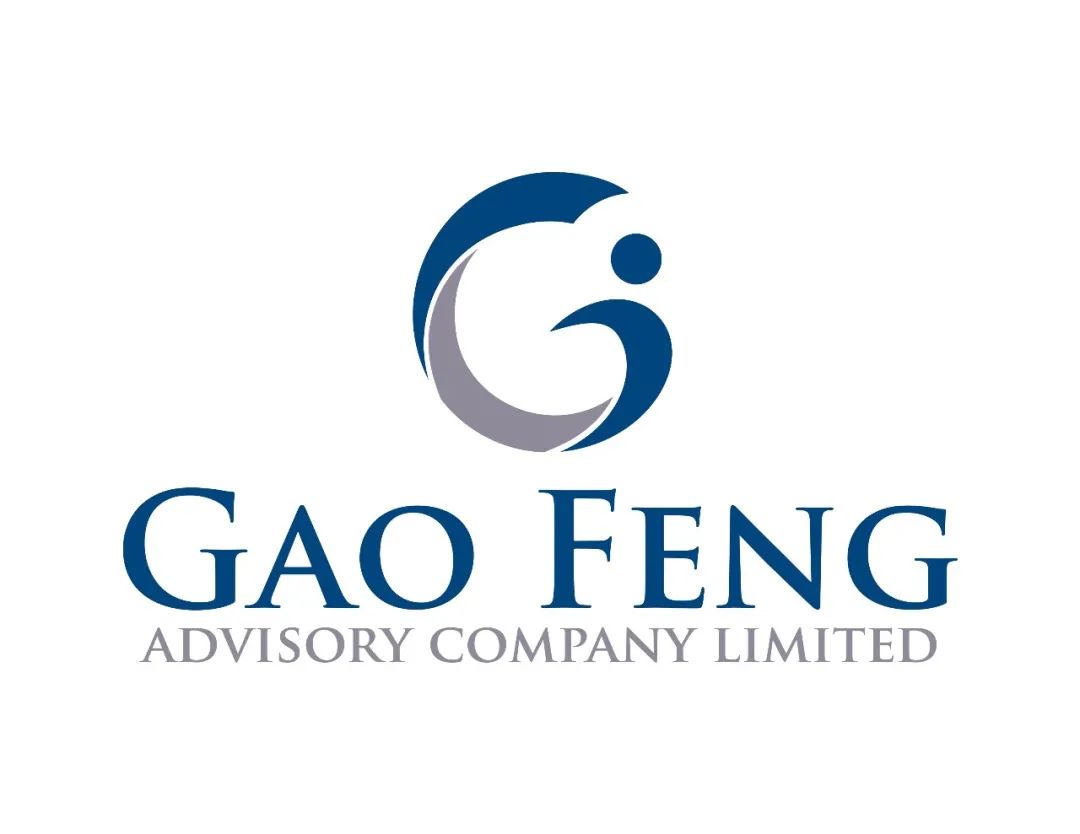CGTN | China's Overhaul of Regulations
China's Overhaul of Regulations in Private Education Part of Strategy

By Edward Tse
2021-7-30
A recent article authored by Dr. Tse was published by CGTN on July 30, 2021.
Editor's note: Edward Tse is the founder and CEO of Gao Feng Advisory Company, a global strategy and management consulting firm with roots in China. The article reflects the author's opinions and not necessarily the views of CGTN.
The recent overhaul of the regulations governing private education sector by the Chinese government has come as a surprise to many. Under the "Double Reduction" policy announced on July 24, the burden of homework and after-school excessive study hours is to be reduced.
The new regulations prohibit private education firms from offering for-profit tutoring in core school subjects on recess time. Private education firms are also not allowed to raise capital and get listed.
Online or in-person classes in core subjects to children under the age of six is also prohibited because children are increasingly pushed to start cramming for exams at a very young age.
After announcement of the new regulations, share prices of all Chinese private education companies fell within a matter of days, listed in the U.S., Chinese mainland and the Hong Kong Special Administrative Region.
China's education industry sub-index dropped as much as 14 percent on July 26. Hong Kong-listed education companies, including New Oriental Education and Technology and Scholar Education Group fell by 40.6 percent and 28.5 percent respectively, along with the U.S.-listed companies Gaotu Techedu and TAL Education Group, both of which plunged by about 50 percent at the end of the day.
The new regulations for the education sector came soon after Chinese regulators took major actions scrutinizing Didi Chuxing, the leading ride hailing company which had recently listed in New York City for data security issues.
At around the same time, regulators banned the proposed merger between two leading games companies, one of which is owned by internet giant Tencent, because of anti-monopoly concerns. Food delivery app Meituan has been asked to pay the required benefits to its delivery people.
Earlier, Chinese regulators also put a stop to Ant Group's IPO due to concerns on its business model, while Alibaba, Meituan and retailer Suning were all fined for anti-competition behavior.
In addition, the Chinese government has taken a number of other steps along the way. These cover areas such as relaxation of the hukou system (a household registration system), eradication of poverty, easing of child birth restriction policy, and increasing access for foreign companies' participation in the Chinese market especially for the financial services sector.
The overhaul of the private education sector is believed to be a key step towards reducing the workload for students and also a way to reduce the costs of bringing up children in China.

One key reason why Chinese couples are reluctant to have more children is the exorbitant costs of bringing up children. This in turn has contributed to the skew of China's demographic profile over time.
So what do these policy measures really mean? And how should investors, both foreign and local, and other observers interpret these policy adjustments? Is this series of policy changes an outlier event or does it indicate something more significant?
On top of these significant policy measures, the Chinese government has also announced its 14th Five-Year Plan in which technological innovation is the key area of focus. While technological innovation has been at the core of China's development for the last decade and more, the need for it has been exacerbated by the U.S. government's sanctions on transfer of core technology to China.
On top, the U.S.-China trade war and pandemic outbreak required China to take decisive decisions in addressing these challenges. China's experience henceforth has increased the confidence in its own governance.
These are being undertaken while China searches for its own brand of modernity. In the centenary speech on July 1, Chinese President Xi Jinping mentioned nine times that " … put conscious effort into learning from history, to create a bright future." This epitomizes how China is searching for its own brand of modernity for which the "whole nation system" is deployed.
When thinking of the future, China often reflects at its rich past. In parallel to respecting and following traditional ways, China is open to imported ideas like Marxism as well as a reasonable degree of capitalism.
It adheres to the principles of socialism, but also embraces the dynamism of a market economy. Focusing on the "great rejuvenation of the Chinese nation," its leader also advocates "a community with a shared future for humankind."
The absorption of foreign thoughts into multiple strands of traditional Chinese thinking such as Buddhism, Confucianism, the long held belief of "yin and yang" into taoism, combined with the "oneness" in Chinese culture, has shaped Chinese civilization for thousands of years. The modern China has somehow created an approach that effectively addresses the multiple dimensions encountered in the search for its own brand of modernity.
This context reassures that China will continue to navigate its way forward in an inclusive manner and grow socially, economically and politically, frequently experimenting with its unique approaches.
In the context of improving the well-being of Chinese people and playing a larger role in advancing overall well-being to the entire world, China's leaders take decisive actions on issues that matter.
While investors of the affected companies may not like these moves, the general public in China, as the beneficiary, are in general supportive. In the search for its envisioned modernity, the Chinese government is trying to promote collective interests while continuing to allow individual's pursuit of financial well-being. The Chinese is calling this a pursuit of "common prosperity."
At this heart of it is an institutional approach to reduction of costs of living for the country's people, including those of giving birth, nurturing children, education and housing.
These corrective measures are expected to put future growth on a sound footing. Going forward, opportunities will come from areas such as hard tech, manufacturing, life sciences, new energy, environmental sustainability agriculture and the like.
Moreover, a large number of start-ups will emerge in these areas and many investors will benefit. But going forward, picking the right lane to invest will be the key. From the investment standpoint, this short-term turbulence redefines the foundation for longer term growth.
As China continues to search for its own brand of modernity with Chinese characteristics, the rest of the world will increasingly get to know of the impact of what China does. People need to deepening the understanding of what China's approach is, and how it works for the world.
About the Author
Dr. Edward Tse is founder and CEO, Gao Feng Advisory Company, a founding Governor of Hong Kong Institution for International Finance, Adjunct Professor of School of Business Administration at Chinese University of Hong Kong and Professor of Managerial Practice at Cheung Kong Graduate School of Business. One of the pioneers in China’s management consulting industry, he built and ran the Greater China operations of two leading international management consulting firms (BCG and Booz) for a period of 20 years. He has consulted to hundreds of companies, investors, start-ups, and public-sector organizations (both headquartered in and outside of China) on all critical aspects of business in China and China for the world. He also consulted to a number of Chinese local governments on strategies, state-owned enterprise reform and Chinese companies going overseas, as well as to the World Bank and the Asian Development Bank. He is the author of several hundred articles and five books including both award-winning The China Strategy (2010) and China’s Disruptors (2015), as well as 《竞争新边界》 (The New Frontier of Competition), which was co-authored with Yu Huang (2020). He holds a SM and s SB in Civil Engineering from the Massachusetts Institute of Technology, as well as a PhD and an MBA from University of California, Berkeley.


Gao Feng Advisory
Gao Feng Advisory Company is a professional strategy and management consulting firm with roots in China coupled with global vision, capabilities, and a broad resources network
Wechat Official Account:Gaofengadv
Shanghai Office
Tel: +86 021-63339611
Fax: +86 021-63267808
Hong Kong Office
Tel: +852 39598856
Fax: +852 25883499
Beijing Office
Tel: +86 010-84418422
Fax: +86 010-84418423
E-Mail: info@gaofengadv.com
Website: www.gaofengadv.com
Weibo: 高风咨询公司
